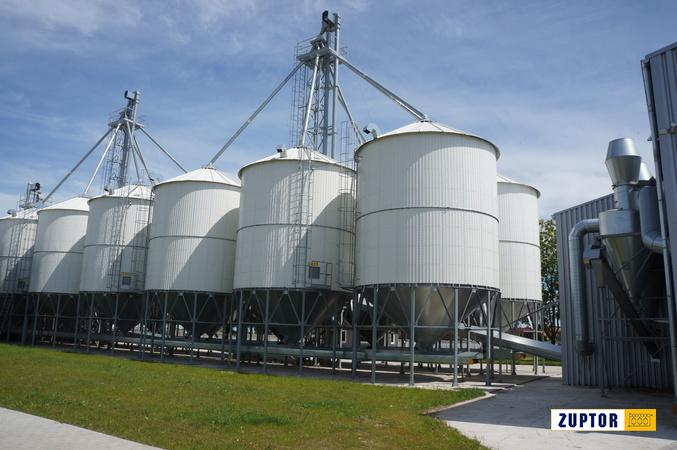
Types of silos
Silos are containers of various sizes used to store bulk materials. There are many different types of silos available on the market today.
In this article, we will introduce and briefly characterise the most important ones that can be found in our range of products.
Division of silos according to the type of material stored
A basic division of silos can be made based on the type of material stored. Two types of silos are available in our range:
Grain silos are available with capacities ranging from 30 to 150 tonnes. In turn feed silos with a capacity of up to 100 m³.
Both silo types have the same construction. The bottom of the silo is a conical hopper, which ensures very efficient discharge of grain by gravity. They are made of double-skinned galvanised sheet metal, additionally coated on the outside to protect against the adverse effects of water and moisture.
It is advisable that the silo is also additionally protected by a thermal insulation layer. This eliminates the problem of condensation.
Silos should have a ventilation system installed to ensure active ventilation of the raw material during storage. Injected air with a fan passes through the entire layer and exits the silo through vents in the roof.
They can be used on their own or as part of a process line and do not require housing or roofing.
We can also invest in solutions that constantly monitor the temperature, maintain the right humidity, ensure that the silo is heated and aired, all of which must be managed by an efficient system that is intuitive and easy to use. This will ensure, for example, that the grain does not start to rot or ferment.
Division of silos according to the type of material used in their construction
Silos can also be classified according to the type of material used in the construction. Our company provides:
Fibreglass silos are designed for the storage of various types of feed, meal and grain. They are characterised by very high technical parameters, which is why they are often used as an alternative to the popular steel silos. Their construction is lighter, but their strength parameters are equally satisfactory.
Among the significant advantages, we can also include the lack of maintenance during use. Their service life is up to 30 years. Due to the smooth wall surface, there is no risk of the feed increasing and, in addition, a much faster discharge of the contents is ensured.
Fibreglass silos show high resistance to temperature differentials (which reduces the risk of mould or animal diseases) or corrosion.
Fabric silos are suitable for storing finished feed, meal and grain. They take up relatively little space and can be assembled independently.
The polyester fibre fabric is durable, flexible and breathable, providing optimal conditions for storing contents. It exhibits resistance to mould and water condensation.
